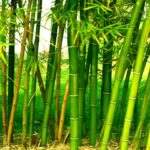Table of Contents
There are several myths and misconceptions about bamboo farming that may discourage or mislead potential growers. Here are some common myths and the facts to debunk them:
1. Myth: Bamboo is invasive and will take over the entire area.
Fact: While some bamboo species, particularly running bamboos, can be invasive, there are many clumping bamboo species, such as Bambusa Balcooa and Dendrocalamus strictus, that are non-invasive and well-suited for farming.
2. Myth: Bamboo farming is not profitable.
Fact: Bamboo farming can be highly profitable due to its rapid growth, low maintenance, and diverse applications in construction, furniture, handicrafts, and more. The key to profitability lies in choosing the right species, proper farm management, and effective marketing strategies.
3. Myth: Bamboo requires a lot of water and fertilizer.
Fact: While bamboo does need adequate water and nutrients to grow, it is generally more drought-tolerant and requires less fertilizer than many traditional crops. Using organic mulching and fertilizers can further enhance soil fertility and reduce the need for chemical fertilizers.
4. Myth: Bamboo is only suitable for tropical climates.
Fact: Bamboo is a highly adaptable plant and can grow in a wide range of climates, from tropical to temperate regions. Selecting the appropriate species for the local climate conditions is crucial for successful bamboo farming.
5. Myth: Bamboo has no environmental benefits.
Fact: Bamboo farming offers numerous environmental benefits, such as carbon sequestration, soil erosion control, and habitat creation for various species. It is also a sustainable alternative to timber for various applications, reducing deforestation and promoting biodiversity conservation.
6. Myth: Bamboo takes a long time to mature and harvest.
Fact: Bamboo is one of the fastest-growing plants in the world, with some species reaching maturity within 3-5 years. This rapid growth rate allows for more frequent harvests compared to traditional timber species, which can take decades to mature.
7. Myth: All bamboo species are the same.
Fact: There are over 1,500 bamboo species with varying characteristics, growth habits, and uses. Choosing the right species for your specific needs, local climate, and soil conditions is crucial for successful bamboo farming. By debunking these myths and misconceptions, potential growers can make informed decisions about bamboo farming and recognize its potential as a sustainable and profitable venture.
Read More: Bamboo Plantation Benefits: A Sustainable Solution
Read More: Bamboo: Sustainable Solutions for a Greener Future





